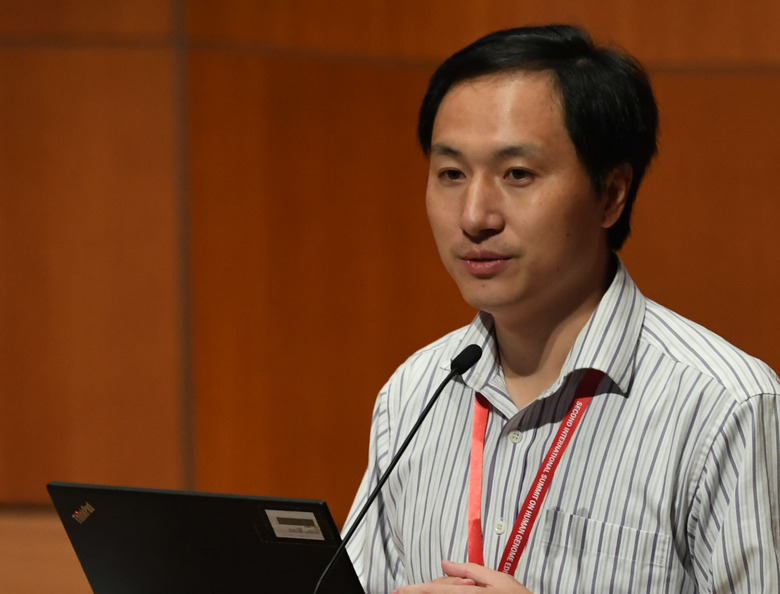Scientists Are Scrambling To Repudiate Researcher's Claims Of Editing The Genes Of Human Embryos
The Second International Summit on Human Genome Editing, taking place this week in Hong Kong, was supposed to be a gathering of researchers and medical professionals for the purpose of furthering the scientific and ethical standards of genetic modification. Instead, it's been thrown into chaos after a Chinese scientist claimed to have gone forward with his own quest to genetically modify human embryos, some of which have already been carried to term, resulting in the first genetically modified humans.
The man at the center of the controversy, He Jiankui, presented unverified research in which he claims to have tweaked the genes of human embryos in order to make them resistant to HIV. Two babies, a pair of twin girls, have already been born and more are allegedly on the way.
As you might imagine, this isn't what the organizers of the summit had in mind.
The ethical implications of modifying the genes of humans have been hotly debated for many years already, but the emergence of CRISPR gene editing technology has made it relatively easy for researchers to conduct such work if they so choose.
Most scientists in the field, however, have chosen not to jump the gun and begin performing the work on human embryos with the intention of producing modified babies. He, who has reportedly been suspended from his post at the Southern University of Science and Technology since February of this year, knows the stances of his many peers and did it anyway.
For want of a better term, He went rogue.
With so many genetics researchers in one place this week, opinions on He's work have come fast but vary little. The genetic modification, if it was indeed done as He claims, has been universally disavowed, and the organizers of the event itself addressed the controversy in a lengthy statement.
At this summit we heard an unexpected and deeply disturbing claim that human embryos had been edited and implanted, resulting in a pregnancy and the birth of twins. We recommend an independent assessment to verify this claim and to ascertain whether the claimed DNA modifications have occurred. Even if the modifications are verified, the procedure was irresponsible and failed to conform with international norms. Its flaws include an inadequate medical indication, a poorly designed study protocol, a failure to meet ethical standards for protecting the welfare of research subjects, and a lack of transparency in the development, review, and conduct of the clinical procedures.
If it wasn't clear from the above paragraph, these scientists are not happy, and they have plenty of reason to be upset.
From the start, many who work in the genetics field have had to battle not only the laws of nature but public opinion as well. The idea of genetically modified humans is, put simply, kind of scary. That's why summits like the one held this week are put together, so that scientists can work together to come up with rules on how to utilize such incredible power over life.
A scientist breaking from his peers and editing human embryos with seemingly little regard for the potential consequences is a worst-case scenario for everyone in the field. We don't know what the weeks and months ahead will bring, but it's safe to say that these are uncharted waters for everyone involved.
